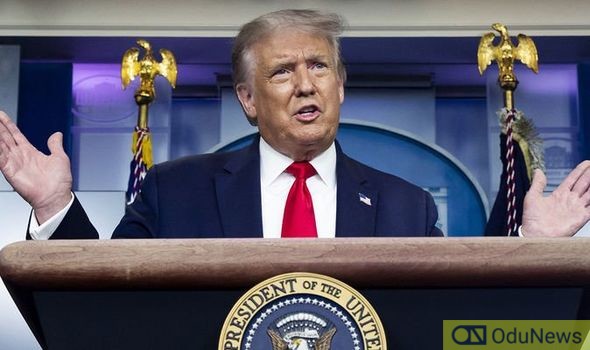
Former U.S. President Donald Trump has announced plans to impose sweeping tariffs on goods from China, Mexico, and Canada as part of his broader strategy to address illegal immigration and the fentanyl crisis. Trump’s latest threats, made via posts on his Truth Social platform, promise a 25% tariff on imports from Mexico and Canada, and an additional 10% levy on Chinese goods, effective immediately if he wins the 2024 presidential election.
Trump Targets Key Trade Partners
Trump’s proposed tariffs would significantly disrupt trade with America’s three largest trading partners. Mexico and Canada would face the penalties until they enforce stricter measures to halt illegal drug flows, particularly fentanyl, and prevent unauthorized migrants from crossing the U.S. border.
“Both Mexico and Canada have the absolute right and power to easily solve this long simmering problem,” Trump wrote. “It is time for them to pay a very big price!”
The move would also escalate tensions with Beijing, with Trump accusing Chinese officials of failing to honor promises to impose the death penalty on fentanyl traffickers. “The idea of China knowingly allowing fentanyl precursors to flow into the United States runs completely counter to facts and reality,” a spokesperson for the Chinese embassy in Washington told the BBC.
Biden Administration’s Approach
The Biden administration has similarly urged China to curb the production of fentanyl precursors, which Washington blames for nearly 75,000 overdose deaths in 2023 alone. However, Beijing’s response has been critical of U.S. accusations, emphasizing mutual benefits in trade relations.
“China believes that China-US economic and trade cooperation is mutually beneficial in nature. No one will win a trade war or a tariff war,” the embassy spokesperson added.
Economic Implications and Trade Fallout
Trump’s tariff plan contradicts the terms of the United States-Mexico-Canada Agreement (USMCA), a trade deal he signed into law in 2020. The USMCA maintains a largely duty-free relationship among the three nations, ensuring economic stability for investors.
Both Canada and Mexico have highlighted the potential economic fallout. Mexico’s finance ministry stated, “Mexico is the United States’ top trade partner, and the USMCA provides a framework of certainty for national and international investors.”
Canada’s Prime Minister Justin Trudeau has reportedly discussed trade and border security with Trump following the threats, signaling early diplomatic negotiations.
China’s Economic Struggles
Trump’s hardline stance comes as China’s economy faces mounting challenges, including a real estate crisis, weak domestic consumption, and rising local government debt. Despite lingering trade tensions, the U.S. remains a significant export destination, accounting for about 15% of China’s exports.
Tariffs as Economic Leverage
Tariffs have long been central to Trump’s economic strategy. During his first term, he repeatedly claimed tariffs would protect American jobs, grow the economy, and generate tax revenue. “These taxes are not going to be a cost to you; it’s a cost to another country,” Trump said, a statement widely disputed by economists.
Stephen Roach, a senior fellow at the Paul Tsai China Center of Yale Law School, told the BBC that Trump’s approach aligns with his campaign promises. “It’s clearly consistent with his promise that he made during the campaign to utilize tariffs as a weapon to accomplish many of his policy initiatives,” Roach said.
Trump’s Treasury Secretary nominee, Scott Bessent, has previously described Trump’s threats as part of a negotiation tactic. “It’s escalate to de-escalate,” Bessent told the Financial Times.
Broader Context and Reactions
The tariffs threaten to disrupt a delicate global supply chain and pose significant risks to economies heavily reliant on U.S. trade. Over 80% of Mexico’s exports and 75% of Canada’s exports are destined for the U.S.
Observers warn that these measures could trigger retaliatory actions from America’s trade partners and jeopardize longstanding economic agreements. If enacted, they would mark a significant escalation in U.S. trade policy and redefine America’s relationships with its key allies and rivals.


Comments are closed.